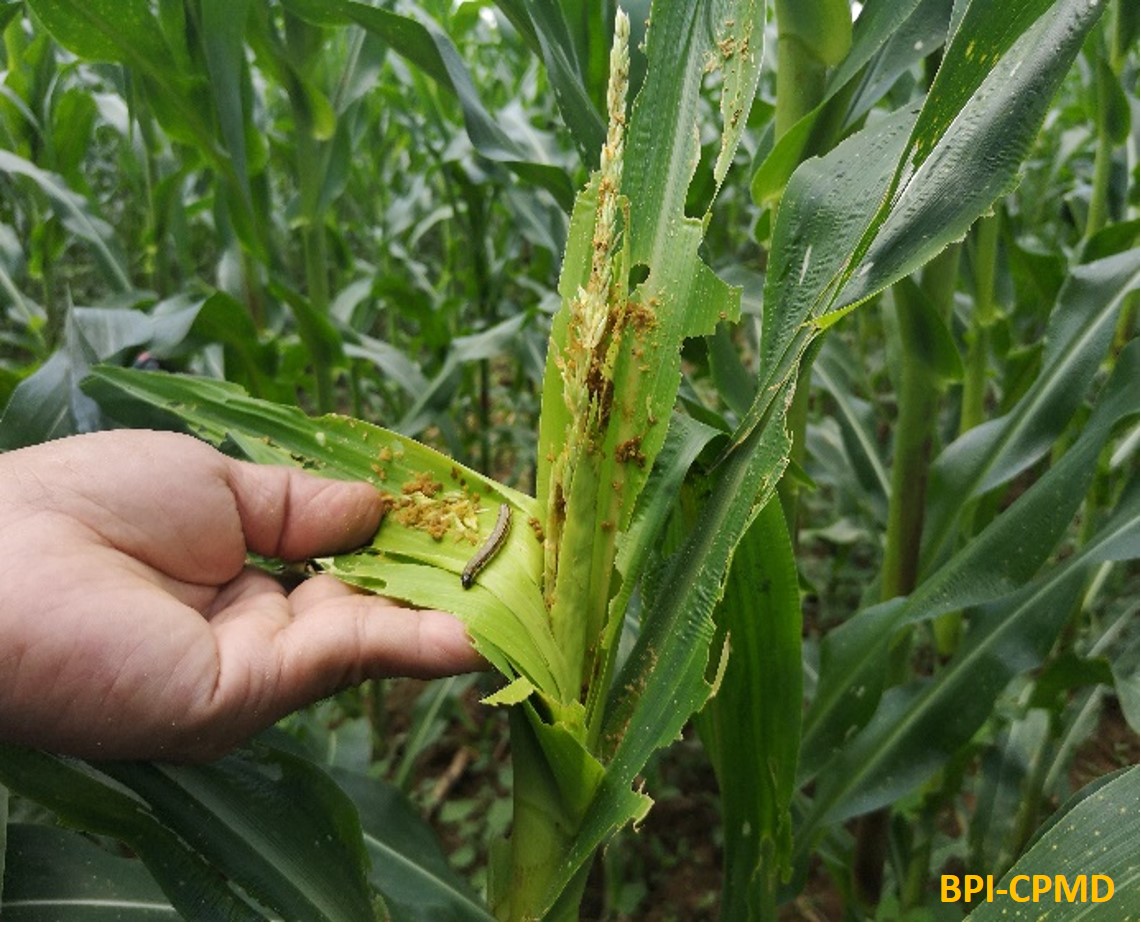
The Department of Agriculture (DA) provided P150-million worth of assistance to help farmers control fall armyworm (FAW) that damage their crops.
“We are deploying crop experts and procuring needed crop protection chemicals and biocontrol agents to effectively manage, control and contain fall armyworm that has to date infested 8,000 hectares planted to corn nationwide,” said Agriculture Secretary William Dar.
The FAW was first reported in June 2019, in Piat, Cagayan, affecting corn plants. Now, it has spread as far as Mindanao.
The larva of FAW (14-30 days old) feeds on plant parts of corn, rice, and other crops, damaging them and causing a significant loss in yield.
Of the 8,000-hectare (ha) affected area, as of June 30, 2020, the FAW has damaged corn crops mostly in: Cagayan Valley (4,214 ha); SOCCSKSARGEN (1,730 ha); Northern Mindanao (882 ha); and Zamboanga Peninsula (665 ha).
To date, the FAW infestation was monitored in 208 municipalities and 47 provinces, as reported to Secretary Dar by the DA Corn Program directorate, Bureau of Plant Industry (BPI), and DA regional field offices (RFOs).
The pest is eradicated using a combination of crop protection chemicals, bio-control agents, and timely integrated pest management (IPM) practices, said DA Corn Program Director Lorenzo Caranguian.
He said the DA has to date provided farmers 63,017 packs of Pheromone lures, 86,983 liters of pesticides, biological control agents such as Trichogramma chilonis to control FAW eggs and earwigs and Metharhizium species against FAW larva.
The DA-BPI and DA-RFOs also conduct farmers’ seminars on IPM and pest control techniques, and good agricultural practices (GAP).
Farmers are grateful that they were able to control the FAW and save their corn crop through the DA’s assistance.
Joselito Cabanayan, farmer-leader of Nueva Vizcaya Corn Grower Association and Service Provider said: “I want to thank DA for their immediate action to control FAW infestation. Their interventions such as biological control, pesticides, and seminars helped us reduce our loss.”
To sustain the campaign against FAW, secretary Dar created a DA-led inter-agency national FAW task force.
The members include the: Department of Environment and Natural Resources (DENR); Department of Interior and Local Government (DILG); local government units (LGUs); Philippine Atmospheric Geophysical and Astronomical Services Administration (PAGASA); Presidential Communications Operations Office (PCOO); Bureau of Customs (BOC); Philippine Ports Authority (PPA); State Universities and Colleges (SUCs); farmers’ groups; and private institutions; and NGOs.
The task force will lead the implementation of strategies and measures to effectively control FAW infestation through strict quarantine inspection, disinfestation of ports, cultural management practices, distribution and use of pesticides and biological control agents, and strategic information dissemination.
“Now, more than ever, we will proactively act on all threats to our food security, be they natural or man-made. The DA is prepared to assist our farmers and fishers in all aspects to protect their crops, sustain their yield and increase their incomes,” Secretary Dar concluded. ### (Ace Velez, DA Strat Comms)













